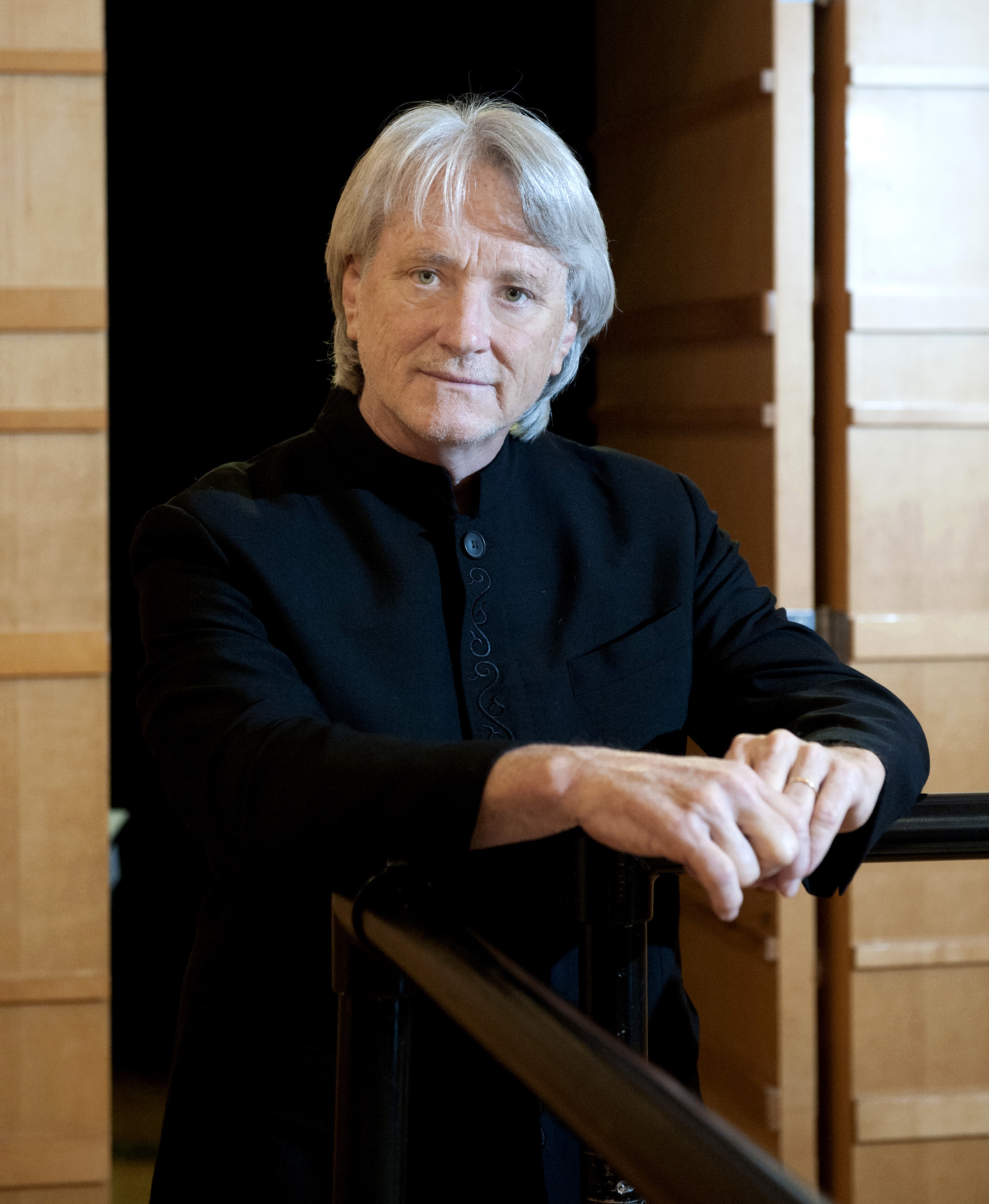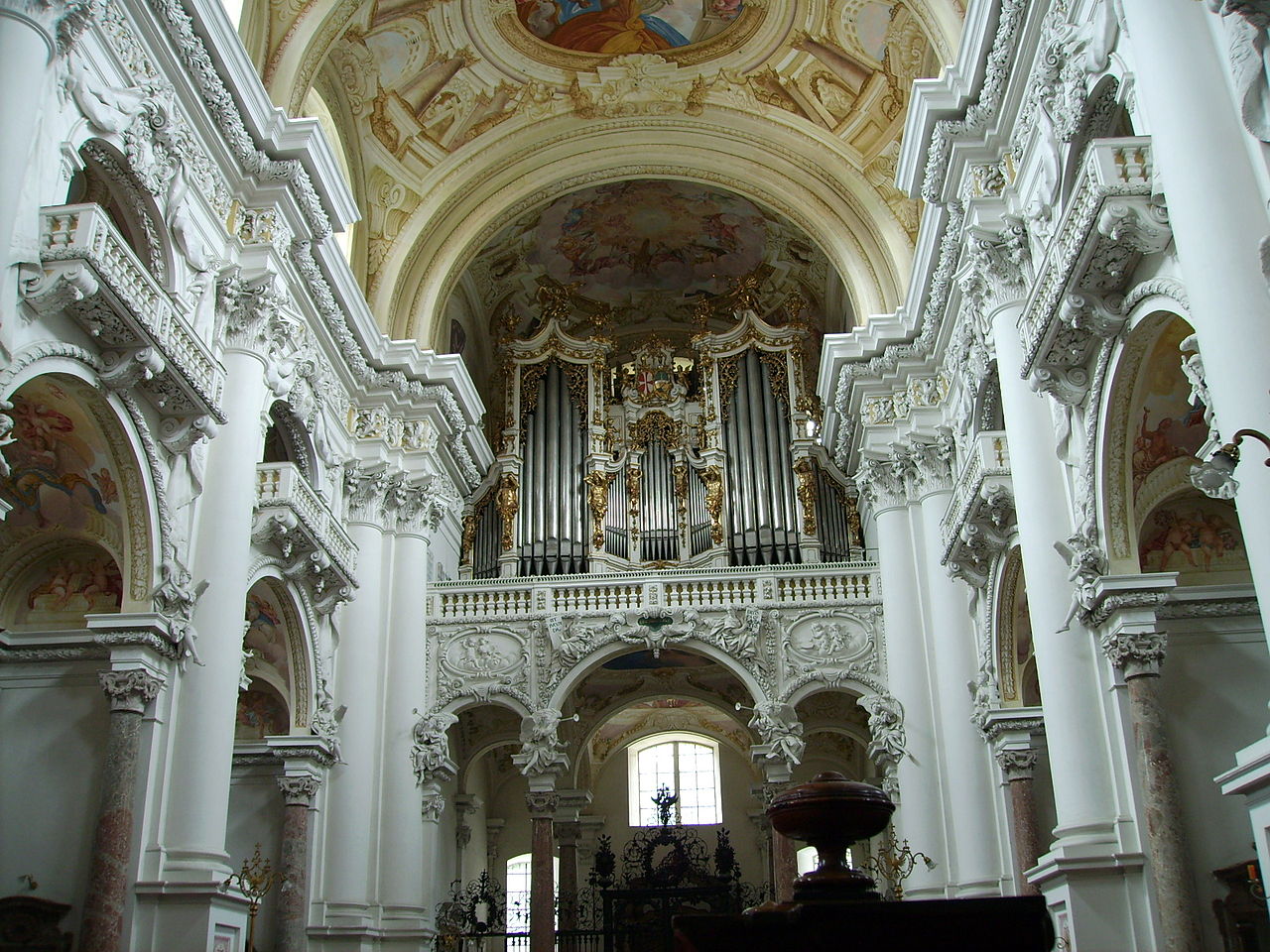Interview: Carl St.Clair takes on Bruckner 8

By TIMOTHY MANGAN
Anton Bruckner’s Symphony No. 8 — massive, glowering, spiritual — is on the schedule this month for the first time in the history of Pacific Symphony. The performances, on Nov. 9-11, will also be the first anywhere for Music Director Carl St.Clair, who seems determined not to waste the opportunity.
“I’ve wanted to conduct this piece for many years, but it’s like Mahler 9, it’s like all the pinnacle works, you have to build up to them,” St.Clair said recently in an interview at the orchestra’s Irvine offices. Not only does he, as a conductor, need to build up to Bruckner’s Eighth, but so do the musicians and the audience, he says. Accordingly, St.Clair has added an extra rehearsal for the orchestra. He’s also devised a prelude to the performance of the Eighth that he hopes will prepare the audience to hear the work.
“You can’t white knuckle it down the 5 or the 405 and every time you come to a stop you look at your phone, you text somebody, you send an Instagram, you answer the phone. You valet park, you run in, you slosh down a glass of white wine and you rush to your seat and then you hear the music of Anton Bruckner — it’s impossible,” he says.
Instead, audience members will enter the Renée and Henry Segerstrom Concert Hall before the performance as Gregorian chant is sung from the stage by the Norbertine Fathers of St. Michael Abbey. Organist Christoph Bull will play organ music by Bach and Bruckner. Video artists Nick and Clemens Prokop will project visuals on three screens that evoke the interiors of the majestic St. Florian Monastery in Linz, where Bruckner served as organist and is buried. The lighting will be low.
All of this is to create a more cathedral-like atmosphere of calm and contemplation, “so that the audience can have an opportunity to receive the music appropriately,” St.Clair says.
Bruckner wrote the Eighth Symphony from 1884-87. When a conductor friend criticized it, he wrote an extensively revised version, completed in 1890. (It is the 1890 version St.Clair has chosen to perform). The composer, a devout Catholic, a lifelong bachelor and a bit of a country bumpkin, composed his symphonies to glorify God, and to ruminate on otherworldly things. These are sacred symphonies, in a way, and therefore unique in the repertoire.

“The biggest problem people have with the music of Bruckner is they think he’s a Romantic composer,” St.Clair says. “He’s not a Romantic composer. In other words, he’s not Romantic in the sense that you cannot expect the same personal reaction to his music as you would get from a Tchaikovsky symphony or a Mahler symphony.
“Nope, if you expect those kind of raw human emotions from the music of Bruckner, you’re going to be disappointed.” In fact, Bruckner’s music can be beautiful, celestial, powerful and majestic, but it is rarely if ever personal in expression.
St.Clair says he’s been studying the score “one measure at a time.” Sometimes, he works on small details. To test out a rhythm in the main theme of the first movement, he played it on an organ to hear how Bruckner may have conceived it. He’s listened to dozens of recordings of the work. (He mentions those by conductors Furtwängler, Knappertsbusch, Kempe, Mehta, Giulini, Skrowaczewski, Celibidache, Boulez and Karajan.) He noticed that the most successful conductors were patient in their unwinding of the symphony.
“That’s the key word: Patience. Some people try to drive Bruckner. Bruckner’s not drivable. It’s like driving this huge steamroller. You don’t drive them, they just move and you hope to steer them. Bruckner moves with such grandeur and such force and such slow developing momentum that if you try to push it you somehow or another disturb it.”
After the Norbertine Fathers sing and Bull plays for a while, St.Clair will come on stage to say a few words about Bruckner and about his Eighth Symphony, excerpts from which Bull will perform at the organ. A short intermission will follow, and afterward the orchestra will perform the symphony, which usually lasts between an hour and 20 and an hour and 30 minutes.
It’s music of such stark grandeur and profound wonder, it’s hard to imagine how Bruckner ever came to produce it.
“Very often the music doesn’t give you any hint as to the person, and the person doesn’t give you any hint to his music,” St.Clair says.
“Some people actually called Bruckner a genius and a simpleton. Like, he was both. He was a genius composer and a simpleton as a person.”
- Pacific Symphony
- With: Carl St.Clair, conductor; Norbertine Fathers of St. Michael’s Abbey; Christoph Bull, organ
- Where: Renée and Henry Segerstrom Concert Hall
- When: Nov. 9-11
- How much: $35-$206
- Call: 714-755-5799
- Online: pacificsymphony.org

I have been waiting for years to hear the PSO perform this incredible symphony. I first heard it live in the early 1980’s with Carlo Maria Giulini conducting the L.A. Philharmonic and have a wonderful recording of it. After Carl St. Clair conducted the Bruckner 7th several years ago I urged him to do the 8th. I wait with great anticipation!
A rustic genius … a simpleton … In other words, a great and intelligent man who composed quite a few masterpieces.
(Btw: that’s the St Florian Monastery, in Ansfelden. Bruckner’s mortal part rests just beneath the orgue, in the crypt)
Corrected. Thanks.